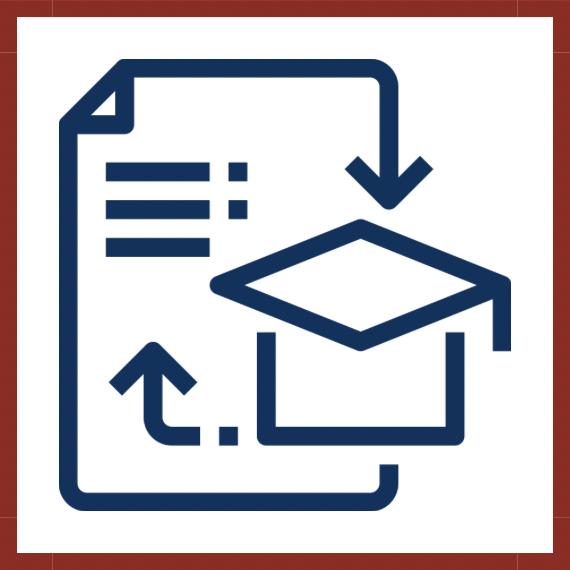Level and Duration of Department: PhD, 8 Semesters
Our Mission
Our mission in the Doctoral Program in Management Information Systems is to provide participants with profound expertise in the strategic management of information technologies and the ability to generate solutions for complex challenges in the business world. The program offers an interdisciplinary perspective, encouraging students to make original contributions in a comprehensive research environment and equipping them with a vision to lead in the industry.
Our mission also emphasizes commitment to ethical values, sustainability, and social responsibility. Accordingly, the program aims to cultivate graduates as professionals with a strong scientific foundation, leadership skills, and ethical principles. As the Doctoral Program in Management Information Systems, we aspire to provide students with the tools to excel in pioneering research and emerge as leaders in the field of information technology.
Our Vision
The vision of our program is to emerge as a globally recognized center, providing a leading-edge education and research experience in information technologies and strategic management. Our vision aims to encourage students to become innovative leaders equipped with knowledge and skills that provide a global competitive advantage. Focused on shaping the future leaders in the field of information technology, our program aspires to lead and influence the industry by identifying and steering developments in the realm of information technology.
Purpose of the Department
The aim of the Doctoral Program in Management Information Systems is to provide participants with in-depth knowledge and expertise in information technologies and strategic management, while fostering their ability to conduct original research. Embracing an interdisciplinary perspective, the program offers students a comprehensive knowledge base to enable them to assume leadership roles in the industry.
The program focuses on cultivating individuals committed to ethical values, sustainability principles, and a sense of social responsibility. In this context, graduates are prepared as professionals with a strong scientific foundation, leadership skills, and ethical values. The Doctoral Program in Management Information Systems aims to shape future leaders by equipping students with the ability to conduct pioneering research and lead in the field of information technologies.
Department Achievements
1. Deep Expertise: Providing students with extensive depth in information technologies and strategic management, enhancing their ability to understand and solve industry-specific complexities.
2. Research Skills: Equipping students with the ability to conduct original research and contribute valuable insights to the industry.
3. Interdisciplinary Perspective: Offering an integrated view by incorporating different disciplines, providing students with a broad perspective and supporting their ability to generate innovative solutions.
4. Leadership and Collaboration: Developing leadership skills in students, strengthening effective communication within teams, and enhancing collaboration capabilities.
5. Commitment to Ethical Values: Emphasizing principles of ethical values, responsibility, and sustainable approaches.
6. Industry Collaborations: Establishing strong collaborations with the industry, offering students opportunities to stay updated on the latest developments and engage in practical applications. These achievements aim to prepare program graduates as professionals who can lead in the industry, specialize in research areas, and adhere to ethical values.
Employment Opportunities
Employment areas of the Doctoral Program in Management Information Systems:
1. Academic Fields: Positions in higher education institutions, research institutes, and educational institutions as academician and researcher.
2. Industrial Leadership: Executive or specialist roles in both large and small-scale companies, particularly in the information and technology sectors.
3. Public Sector: Leadership positions in information strategy, cybersecurity, and management within public institutions and government agencies.
4. Consultancy: Providing consulting services on strategic management and information-related issues in consultancy firms.
5. Research and Development: Engaging in research and development projects that identify technological advancements and lead the industry.
6. Entrepreneurship: Establishing one's own business and developing and managing innovative projects in the fields of information and technology. These employment areas aim to equip program graduates with a broad spectrum of career opportunities, enabling them to become effective leaders in different sectors.
How the Lessons are Conducted
The Management Information Systems Program, conducted through an Internet-based Learning Management System (LMS), offers students learning opportunities using a distance education model. This allows students to participate in classes online and complete the program. Here is more information about the functioning of such an LMS-based program:
1. Online Course Material: The course material of the program is accessible on the LMS platform. Students can access lecture notes, slides, videos, reading materials, and other resources from this platform.
2. Video Lectures: Instruction is supplemented with recorded video lectures. Students can watch these videos online, providing them with an opportunity to understand the course content.
3. Live Classes and Webinars: Some programs organize live classes or webinars. Students can participate in these live sessions, interacting with instructors.
4. Interactive Discussions and Forums: The LMS provides interactive discussion boards and forums. These platforms allow students to ask questions related to the course and engage in discussions with fellow students.
5. Student Assessments: Online quizzes, assignments, and project submissions are used to measure students' achievements. These assessments evaluate students' understanding and application skills.
6. Customized Course Programs: The LMS offers customized course programs for students. They can choose courses that align with specific areas of interest or career goals.
7. Online Communication: Students can communicate with instructors and classmates through the LMS. Email, messaging, and video conferencing tools can be utilized.
8. Research and Project Collaboration: Students can collaborate on research projects through the LMS. This provides students with the opportunity to form online study groups.
9. Diploma: Students who successfully complete the program receive a PhD degree diploma. Programs conducted using an Internet-based LMS offer students the opportunity to receive education independent of geographical and time constraints.


Bölüm Müfredati / Department Curriculum
